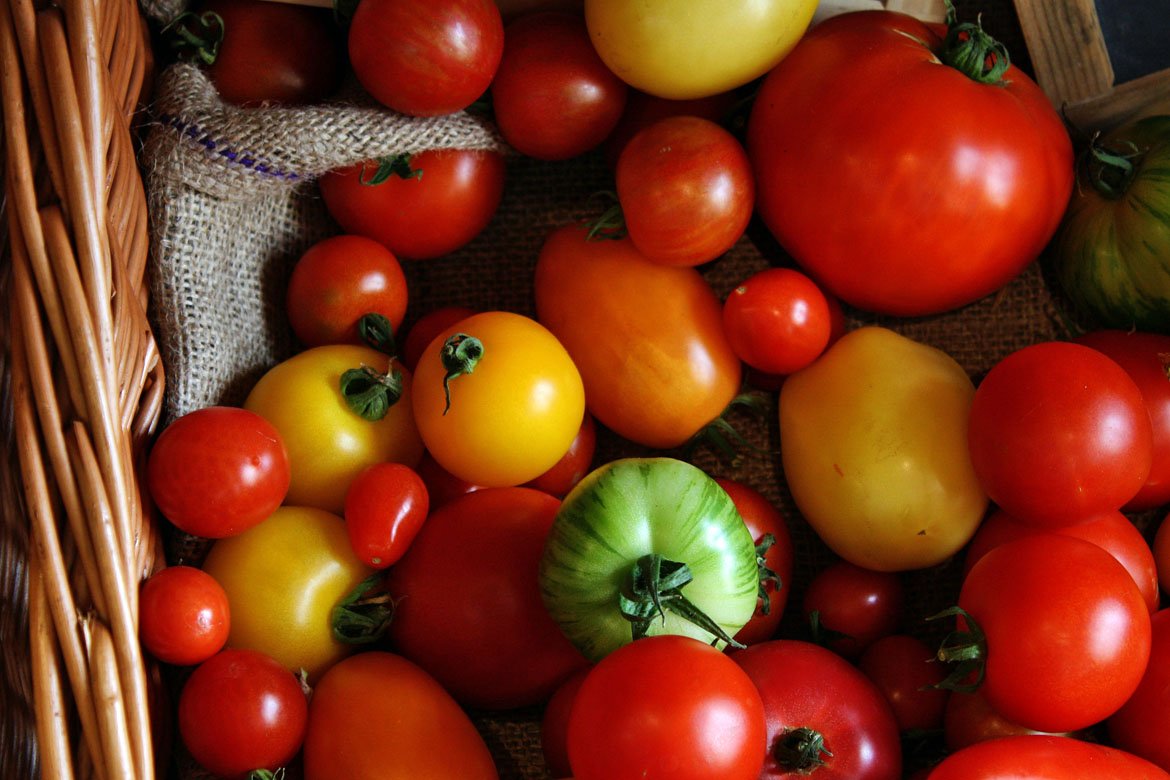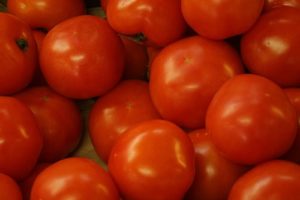Aren’t all tomatoes the same? If I can save money buying a gorgeous red tomato at a large chain grocery store isn’t that a better than spending more on one grown locally?
Before you can really make that decision, you must become an informed consumer. Do you really know where the tomato you just bought was grown and in what conditions, i.e., pesticides, genetically modified etc? And do you honestly have any idea who pockets the money when you pay for it? Finally, is that tomato you bought the freshest, best-tasting option for your family?
Consumers across the country are becoming increasingly knowledgeable about their food supply. Buying food that is grown closer not only means it’s fresher and seasonal (meaning grown and harvested at its most flavorful peak) but it also means money hasn’t been spent on fuel to ship it across the country or fly it around the world. And honestly? the taste and smell fresh picked produce at the height of its season, is far superior — nothing compares to a sun-warm, vine-ripened tomato or a crunchy freshly-picked pea pod.
There is magic that happens when you connect to a local farmer. Their family and livelihood depend on you purchasing what they grow, just as you need them to get the very best food. It’s a beautiful symbiosis.
Smaller producers do often have to charge more for produce than grocery stores because they aren’t linked into huge corporate deals like the larger supermarket chains. And they often use smaller equipment, which means smaller production. But because they bring it to you directly from the field, the fruit’s been handled less and often hasn’t been refrigerated which also makes for a huge difference in flavor.
I remember back in my grandmother’s time her inquiring at the market if fruits and vegetables had been on “cold storage”. She would steer away from those products that had because she knew their flavor diminished significantly. In some fruits and vegetables the composition of the sugars inside them changes dramatically upon being chilled.
The ideal for healthful qualities and flavors is to buy the food you’re going to cook each day as Europeans do but that’s less practical in the U.S. when you don’t walk past the farm stand on your way to work. A more practical option here is to attend or two farmers markets a week and get the bulk of what you’ll need for that week. Most fresh vegetables and fruits will keep for at least a week and there are tricks you can learn on how to store them.
Interacting with local farmers at the markets also lends an opportunity to ask questions directly and give input. You can ask how and where everything is grown, and what chemicals and fertilizers were used to grow it. For example, last week April I bought Japanese eggplants at the Wednesday farmers’ market on Main St. in Ventura and when I asked if pesticides had been used in growing them, the woman selling them told me that though those specific cucumbers had not been sprayed with pesticides, I should ask every week as later in the summer, when infestations become harder to control they will start to spray chemicals. That kind of honesty and knowledge are gold! I now trust her as a vendor, plus her cucumbers are the sweetest and crunchiest I’ve tasted in years!
Also, it is so much nicer to talk with a farmer who is excited about their produce and ask them how to store it, how long it will last and how to cook it. Talking to a farmer can be like calling granny for best-kept secret recipes.
So is a tomato a tomato? Not really when you start to care about taste, what chemicals were used when growing it, whether it’s in season and who actually keeps the money you pay for it.
If I were to recommend one vegetable to start investigating this process with it would be the ever-popular tomato. They are just coming into the height of their season at the farmers market and there will be so many types to taste. If you start with tasting the difference of a fresh tomato in season compared with what you’ve had at larger markets all winter and spring long, you’ll be hooked and the rest will follow!






2 comments
Hopefully you can stop in and visit us also. We’re in Camarillo.
Nice article. We appreciate your efforts.
Chris Brown
Cantara Cellars
Looking forward to giving up unhealthy sweets this year and turning to locally grown, fresh and deliciously sweet fruits and vegetables that will be coming into season like dark, ripe tomatoes…yummm!